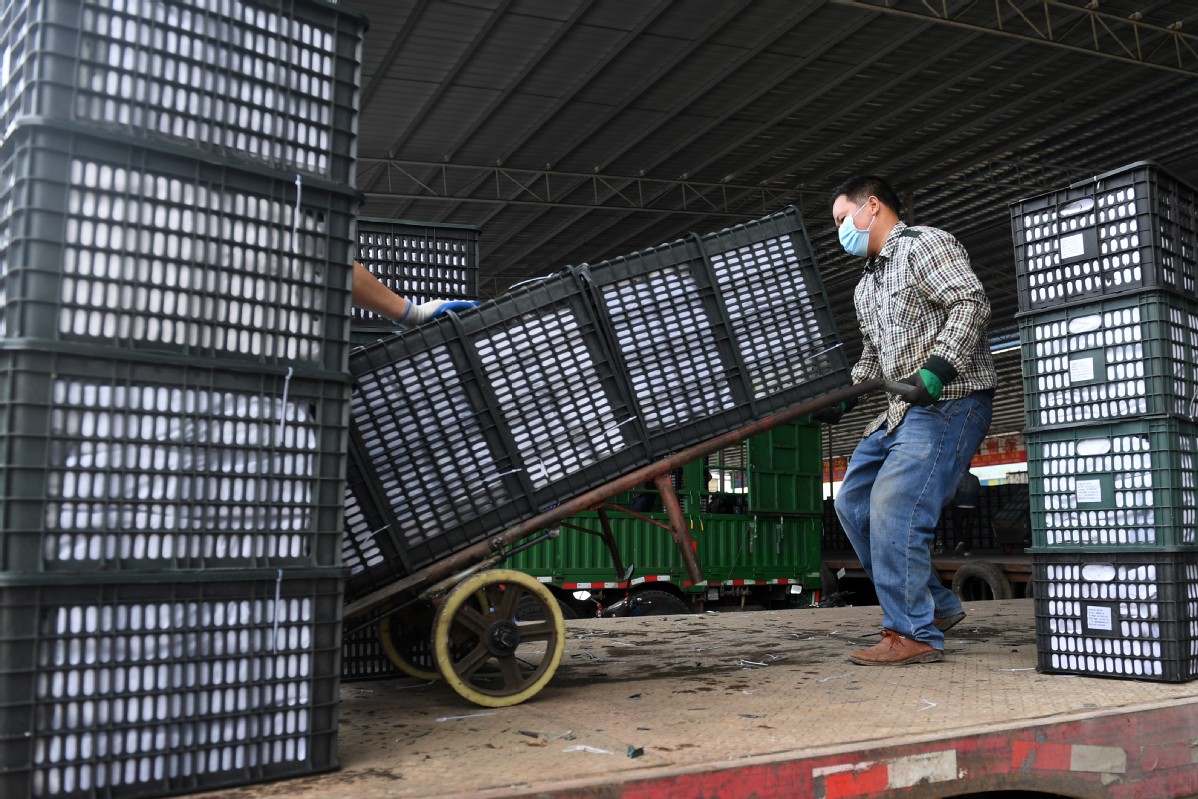Expert: China to lead U-shaped recovery of regional economy


China will lead a gradual U-shaped regional economic recovery, which will help anchor production and confidence in neighboring countries aided by the adoption of a wide range of stimulus packages to contain the novel coronavirus epidemic, the head of a leading international research organization told China Daily in an exclusive interview on Wednesday.
A U-shaped recovery is one in which the economy gradually climbs out of a recessionary environment.
All economies in the ASEAN+3 region, the Association of Southeast Asian Nations (ASEAN) plus China, Japan and South Korea, could return to positive growth in 2021, and the region as a whole is expected to expand by 6.2 percent next year, led by China, said Toshinori Doi, director of the ASEAN+3 Macroeconomic Research Office (AMRO), which monitors macroeconomic and financial stability in the region.
"China can play an important role to lead and support the region's economic recovery by resuming connectivity in trade and investment with regional economies and regaining regional demand," said Doi. "But this trajectory depends largely on how effectively the regional and global economies can contain the virus."
AMRO expects the region's economy to slow sharply to 0.2 percent this year. It has already shaved 3 percentage points off the growth forecast compared to a month ago.
As the COVID-19 outbreak has been nearly brought under control in China, more than half of the companies, particularly the export-oriented ones, have achieved around 80 percent of production utilization, said AMRO.
China's resumption of production will help anchor regional production and confidence, the director said. The region's electronics and semiconductor industries-spurred by 5G and artificial intelligence development, petroleum and chemicals from energy consumption-and textile and garment sectors will benefit from the resumption of manufacturing in China.
Besides, China's plan to increase infrastructure spending will also benefit commodity exporters in the region, Doi said.
"We expect China to carry out large infrastructure investment, such as transportation in the upcoming stimulus package. The country's demand for mining products will benefit mining exporters in the ASEAN, such as Indonesia, Malaysia, Laos, Myanmar and Vietnam."
On the shocks, the AMRO director said the pandemic has disrupted the ASEAN+3 supply chain and affected derived demand within the region.
In the post-pandemic period, efforts are likely to be focused on improving the robustness of the regional supply chain by diversifying the production of key intermediate and final products to more countries, to mitigate the risk of such disruptions.




































